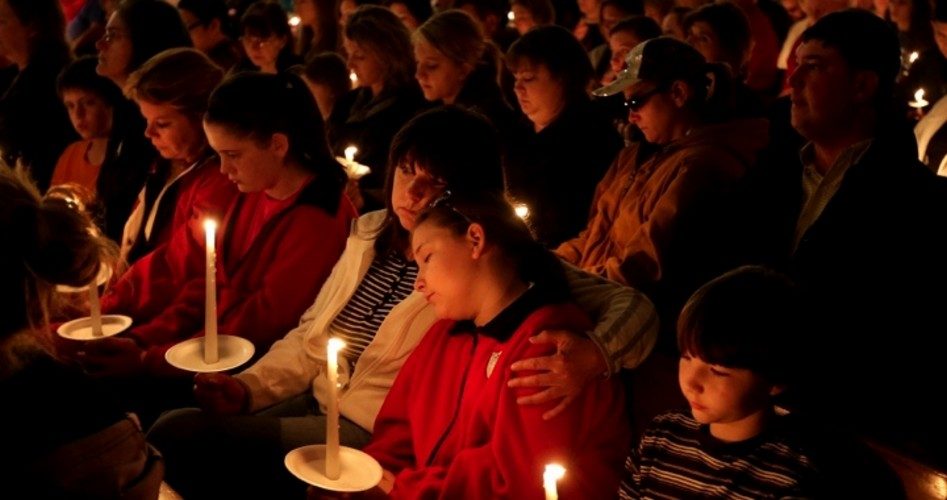
It has become a fact of life in America that almost every tragedy gathers a gaggle of political pontificators who loudly speculate that Islamic terrorism is the cause of our every woe. Thus it was that when a small Texas town was devastated by a horrific explosion at a fertilizer plant, the death and destruction was immediately seen as fodder for the conspiracy canard.
The whole world has now heard of the explosion that transpired on the evening of Wednesday, April 17, in the town of West, Texas. West is a town of approximately 2,800 souls, and it has been known for many years as a community that is proud of its Czech-American heritage. In fact, until the explosion at the West Fertilizer Co., the town was known to outsiders almost exclusively for its deservedly famous kolaches and annual “WestFest.”
In the aftermath of the Boston Marathon bombing, the pundits were disinclined to ignore Rahm Emanuel’s famous advice to “never let a serious crisis go to waste.”
Before the ashes could cool in the ruins of a nursing home and apartment complex in West, Sean Hannity was interviewing Texas’ Lieutenant Governor, David Dewhurst, on the day after the explosion, asking leading questions, and apparently attempting to link the tragedy either to events in Boston or to the anniversary of the Branch Davidian massacre, which occurred in nearby Waco on April 19, 1993. Throughout the interview, Dewhurst seemed to have a hard time getting Hannity to even realize that Waco and West are two different cities in Texas.
Meanwhile, bloggers pursued the same apparently disjointed speculations that a “seemingly multi-front assault on America’s cities large and small has occurred. As much as officials attempt to tell the public that this recent wave of terroristic acts are unrelated or uncoordinated, the evidence seems to speak to us of a much different conclusion…. There have been discussions of a planned retaliation for the Waco massacre that had been sanctioned under Clinton administration and the FBI against David Koresh and the Branch Dividians [sic] 20 years ago on the anniversary of the controversial carnage that had occurred.”
The town of West is within the parish served by the author, and as one who is now ministering to those who are suffering in the aftermath of this explosion, one can only plead: Now is the time for us to bury our dead. We do not need outsiders capitalizing on our suffering.
The causes of the explosion will become clear in time. Some press reports are already exploring what appears to be a number of safety-related issues that have been raised regarding this particular plant over the years. The tragic loss of life that occurred on the night of April 17 will be felt in our community for years to come, no matter whether it was due to terrorism or negligence, or was simply one of those terrible things that “just happens.”
What is manifest already in the aftermath of this tragedy are the courage, resilience, and charity of our friends and neighbors. When many residents were left homeless by the explosion and fires, they did not go into public shelters — they went to stay with friends and family. As Laura Nelson wrote for the Los Angeles Times:
In West and the small towns that surround it, businesses and churches opened their doors to people made homeless by the deadly fertilizer plant explosion. But while the town’s lone hotel filled up quickly, many beds at temporary shelters have stayed empty — a testament, shelter operators said, to the generosity of a tight-knit community.
Many evacuees have family or friends in neighboring towns who have taken in anyone who needs a bed, shelter officials said.
Many of those who died in the disaster were firefighters — both professional and volunteer — who rushed to fight the fire at the plant and were caught in the explosion. The bravery of our volunteer firefighters is often on display in our small towns and countryside — they are serving our community, and they do so because that is what neighbors do for one another.
Many of our volunteer firefighters served throughout the night, laboring to save lives and property, even though they knew that some of their fellow volunteers had already died earlier in the evening. A great number of those brave volunteers returned to their work the next day — one such gentleman even apologized for being a few hours late opening the store where he works because he needed at least a few hours of sleep after spending the night serving his community.
Our volunteer and professional Emergency Medical Services personnel labored through the night, knowing that the chemicals to which they had been exposed were dangerous. The businessmen and citizens of not only West, but all the surrounding towns and villages, rushed to donate blood and to provide meals, shelter, clothing, and other necessities of life to those who were injured or suffering any loss. Even as they mourned the dead, they labored to relieve the suffering of those who survived. And our community will recover, and will no doubt care for the needs of the families of those who died long after the pundits have found other ambulances to chase.
We are Americans. We are Texans. Our first line of defense is always found in our neighbors. Our comfort in sorrow and relief from afflictions can be found in our churches. We will rebuild, and we will forgive those who have seen our loss as their opportunity for political gain.
Photo of mourners attending a prayer service in West, Texas, April 18: AP Images


